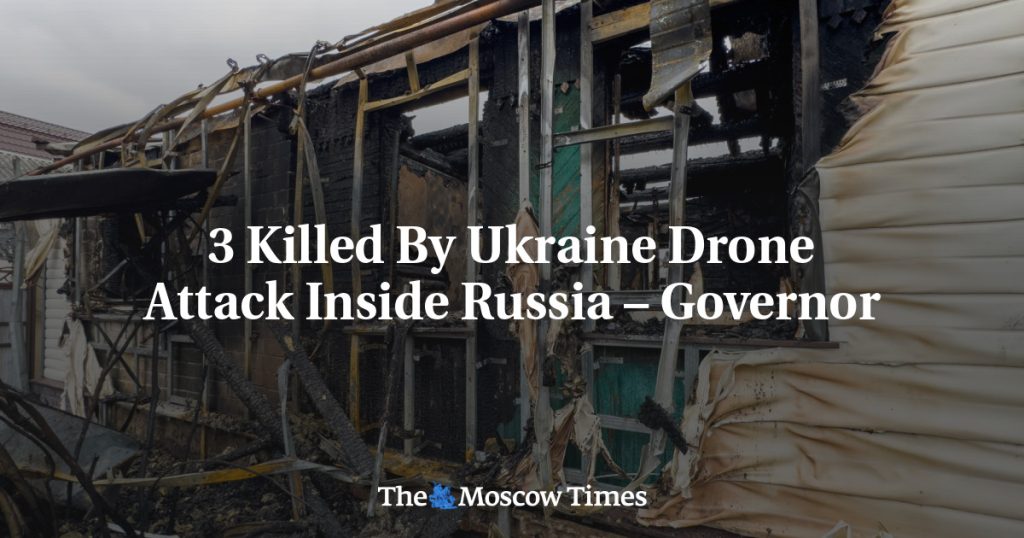A recent Ukrainian drone attack inside Russia resulted in the deaths of three people, including two children, in the Kursk border region. The drone fired a rocket at a civilian car in a village in the Korenevski district, according to Governor Roman Starovoit. This incident highlights the ongoing conflict between Ukraine and Russia, with Ukraine targeting Russian border regions in retaliation for Russian bombings of Ukrainian towns over the past two years. The governor also noted that the Ukrainian bombardments had caused damage to electrical lines in the area, resulting in power cuts for local residents.
The attack in Kursk is not an isolated incident, as Ukraine has been launching daily attacks on Russian border regions recently. This escalation in hostilities has led to casualties on both sides, with two people reportedly killed by Ukrainian artillery fire in the Bryansk region just a day before the drone attack in Kursk. The situation illustrates the volatile nature of the conflict between Ukraine and Russia, which shows no signs of abating. The targeting of civilian areas and critical infrastructure further exacerbates tensions and raises concerns about the impact on civilians caught in the crossfire.
The loss of innocent lives, particularly that of children, in the recent drone attack underscores the human cost of the ongoing conflict. The tragic deaths in Kursk and Bryansk serve as a stark reminder of the devastating consequences of the violence that has engulfed the region. Both sides must prioritize the protection of civilians and work towards a peaceful resolution to the conflict to prevent further loss of life. The international community has a role to play in advocating for a ceasefire and facilitating negotiations to end the cycle of violence.
The damage to electrical lines in the Kursk region highlights the broader impact of the conflict on essential services and infrastructure. Power cuts resulting from the Ukrainian bombardments further disrupt the lives of residents in the affected areas, compounding the challenges faced by communities already struggling in the midst of conflict. The destruction of critical infrastructure hampers recovery efforts and impedes access to basic necessities, exacerbating the humanitarian crisis in the region. Efforts to restore essential services and repair damages must be a priority to alleviate the suffering of civilians caught in the conflict.
The cycle of retaliation and violence between Ukraine and Russia only deepens the divide and perpetuates the conflict, with neither side showing any signs of backing down. The ongoing hostilities have created a dangerous and unstable situation that continues to claim lives and devastate communities. The international community must step up its efforts to mediate a peaceful resolution and address the root causes of the conflict to prevent further escalation. Diplomatic solutions are essential to ending the cycle of violence and fostering stability in the region, ensuring a safer and more secure future for all those affected by the conflict.
In conclusion, the recent drone attack in Kursk, resulting in the deaths of three people, including two children, is a tragic reminder of the human cost of the ongoing conflict between Ukraine and Russia. The targeting of civilian areas and critical infrastructure, along with the daily attacks on border regions, underscores the need for a peaceful resolution to the conflict. Both sides must prioritize the protection of civilians and work towards de-escalation to prevent further loss of life. The international community has a crucial role to play in advocating for a ceasefire and facilitating negotiations to bring an end to the violence and suffering in the region.


